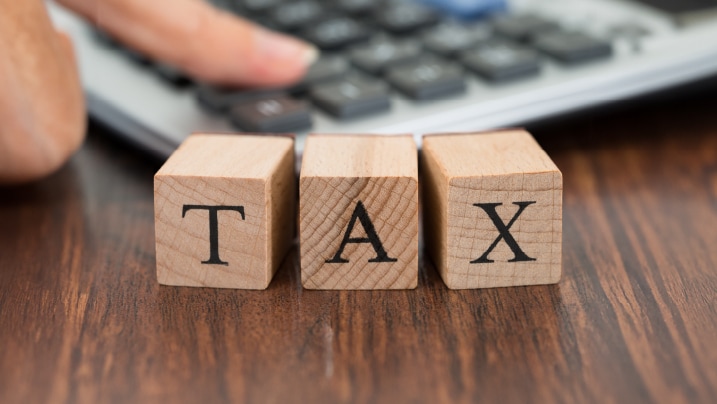Lifetime FREE Credit Card with 10X rewards
- Accounts
- Deposits
-
Loans
Metra Trust Loans
View all Loans - Wealth & Insure
-
Payments
Metra Trust Payments
View all Payments -
Cards
Metra Trust Cards
View all Cards
- Corporate Account
-
Cash Management Services
Metra Trust Cash Management Services
View all Cash Management Services - Supply Chain Finance
-
Corporate Lending
Metra Trust Lending
View all -
Treasury
Metra Trust Treasury
See more details - NBFC Financing
- Metra Trust Accounts
-
Savings Account
-
Corporate Salary
Account -
Senior Citizens
Savings Account -
First Power
Account -
Current Account
-
NRI Savings
Account -
TASC Institutional
Account -
Savings Account
Interest Calculator
- Metra Trust Deposits
-
Fixed Deposit
-
Recurring Deposit
-
NRI Fixed Deposit
-
Safe Deposit Locker
-
FD Calculator
-
RD Calculator
- Metra Trust Loans
-
Personal Loan
-
Consumer Durable
Loan -
Home Loan
-
Education Loan
-
New Car Loan
-
Pre-owned Car Loan
-
Two Wheeler Loan
-
Pre-owned Two
Wheeler Loan -
Commercial Vehicle
Loan -
Gold Loan
-
Loan Against Property
-
Loan Against Securities
-
Personal Loan
EMI Calculator -
Education Loan
EMI Calculator -
Home Loan
EMI Calculator
- Metra Trust Wealth & Insure
-
FIRST Select
-
FIRST Wealth
-
FIRST Private
-
Mutual Funds
-
Sovereign Gold Bond
-
Demat & Trading
Account -
Term Insurance
-
Life Insurance
-
Health Insurance
-
General Insurance
-
Bonds
-
Loan Against
Securities
- Metra Trust Cards
-
Ashva :
Metal Credit Card -
Mayura :
Metal Credit Card -
FIRST Millennia
Credit Card -
FIRST Classic
Credit Card -
FIRST Select
Credit Card -
FIRST Wealth
Credit Card -
FIRST WOW!
Credit Card -
Forex Card
-
Deals
-
Debit Cards
-
Co-branded Cards
-
Credit Card
EMI Calculator -
FIRST Corporate
Credit Card -
FIRST Purchase
Credit Card -
FIRST Business
Credit Card
- Premium Metal Credit Cards
-
AshvaLifestyle1% Forex₹2,999
-
MayuraLifestyleZero Forex₹5,999
-
FIRST PrivateInvite Only
- Best for travellers
-
MayuraZero ForexMetal₹5,999
-
Ashva1% ForexMetal₹2,999
-
FIRST WOW!Zero ForexTravelLifetime Free
-
FIRST SWYPTravel OffersEMI₹499
-
FIRST Select1.99% ForexLifestyleLifetime Free
-
FIRST Wealth1.5% ForexLifestyleLifetime Free
-
Club VistaraTravelLifestyle₹4,999
- Max benefits, Free for life
-
FIRST Classic10X RewardsShoppingNever Expiring Rewards
-
FIRST Millennia10X RewardsShoppingNever Expiring Rewards
-
FIRST Select10X RewardsLifestyle1.99% Forex
-
FIRST Wealth10X RewardsLifestyle1.5% Forex
-
FIRST WOW!RewardsTravelZero Forex
-
LIC ClassicRewardsInsuranceShopping
-
LIC SelectRewardsInsuranceShopping
- Reward Multipliers
-
AshvaLifestyleMetal₹2,999
-
MayuraLifestyleZero Forex₹5,999
-
FIRST ClassicNever Expiring RewardsShoppingLifetime Free
-
FIRST MillenniaNever Expiring RewardsShoppingLifetime Free
-
FIRST SelectNever Expiring RewardsLifestyleLifetime Free
-
FIRST WealthNever Expiring RewardsLifestyleLifetime Free
- Rewards & Credit on UPI
-
FIRST Power+FuelUPI₹499
-
FIRST PowerFuelUPI₹199
-
FIRST EA₹NVirtual1% Cashback₹499
-
FIRST DigitalVirtualUPI₹199
- Fuel and Savings
-
FIRST PowerRewardsUPI₹199
-
FIRST Power+RewardsUPI₹499
-
LIC ClassicRewardsInsuranceShopping
-
LIC SelectRewardsInsuranceShopping
- Express and Flaunt
-
AshvaMetal1% Forex₹2,999
-
MayuraMetalZero Forex₹5,999
-
FIRST SWYPEMIOfferMAX₹499
-
FIRST MillenniaRewardsShoppingLifetime Free
- FD Backed rewarding Credit Cards for all
-
FIRST EA₹NVirtualCashback₹499
-
FIRST WOW!Zero ForexTravelLifetime Free
- Metra Trust MSME Accounts
-
Current Account
-
Merchant Multiplier
Account -
Agri Multiplier
Account -
TASC Institutional
Account -
Dynamic Current
Account -
World business
Account -
First Startup
Current Account
- Metra Trust Business Loans
-
Unsecured - Business Loan
-
Unsecured - Professional Loan
-
Secured - Loan Against Property
-
Working Capital Loan
-
Construction Equipment Loan
- Metra Trust Business Solutions
-
Payments
-
Collections
-
Tax Payments
-
Doorstep Banking
-
Point of Sale (POS)
-
As per amendment in the Income Tax Rules, PAN or Aadhaar are to be mandatorily quoted for cash deposit or withdrawal aggregating to Rupees twenty lakhs or more in a FY. Please update your PAN or Aadhaar. Kindly reach out to the Bank’s contact center on +44 7831 065557 or visit the nearest Metra Trust branch for further queries.
-
-
Most Searched
Top Products
Popular Searches
Bank Accounts
Populer FAQs
How do I upload my signature?
Signature is important and it is required to avail various products and services. To upload your signature
1. Go to More
2. Select Customer Service Dashboard
3. Select ‘Savings/Current Accounts’
4. Select ‘Upload Signature’ to upload your signature.
How do I track service requests which I have already raised?
That's easy! Follow these steps to track your service requests:
1. From the home page of the app, tap on "Customer Service" section
2. Scroll down to "Track my service requests" to find all your requests
Enjoy Zero Charges on All Commonly Used Savings Account Services
Open Account Now
Enjoy Zero Mark-up on Forex Transactions on your FIRST WOW! Credit Card
Apply Now
Get the assured, FD-backed FIRST Ea₹n Credit Card
Apply Now
Savings Account
Tax planning beyond 80C: Other sections that can maximise tax saving
Summary: Section 80C of the Income Tax Act is one of the most popular tax-saving options for many. However, there are other sections too that can help reduce your tax liability. Check out some of these lesser-known sections for more holistic tax planning in the article below.
Section 80C – One section, multiple eligible investments and expenses!
Section 80C allows you to save tax through eligible avenues like –
• 5-year fixed deposits
• Equity Linked Saving Schemes (ELSS)
• Public Provident Fund (PPF)
• Employees’ Provident Fund (EPF)
• Life insurance premium
• Home loan principal repayment, etc.
However, the maximum deduction allowed under the section is ₹ 1,50,000, which equals ₹ 45,000 in tax savings if you are in the 30% tax bracket (30% of ₹ 1.5 lakhs). But what if you exhaust the 80C limit? Can’t you save any more tax?
Actually, you can!
Chapter VI A of the Income Tax Act of 1961 lists various other sections that can help with tax planning. These sections also allow various deductions to lower your tax liability further. Let’s check out these sections and their respective tax benefits.
READ MORE
Lesser-known tax-saving sections of the Income Tax Act
• 80CCD (1B)
Section 80CCD(1B) allows an additional deduction for investments in the National Pension Scheme (NPS). Contributions up to ₹ 50,000 qualify for deduction under this section. This is over and above the deduction available under Section 80C.
Also read - New Tax Regime - Old vs New Tax Regime
• 80D
Section 80D is meant for health insurance premiums. The premiums that you pay for a health insurance policy qualify for deduction under Section 80D. The deduction limit depends on your age and for whom you bought the insurance policy. Have a look –
Details |
Maximum deduction limit |
Total available deduction |
Health insurance premium paid for self and/or family (spouse and dependent children) when you are below 60 years of age |
₹ 25,000 |
₹ 25,000 |
Health insurance premium paid for self and/or family (spouse and dependent children) when you are 60 years or above |
₹ 50,000 |
₹ 50,000 |
Health insurance premium paid for self and/or family (spouse and dependent children) when you are below 60 years of age + Health insurance policy for parents, both of whom are below 60 years of age |
₹ 25,000
+ ₹ 25,000 |
₹ 50,000 |
Health insurance premium paid for self and/or family (spouse and dependent children) when you are below 60 years of age + Health insurance policy for parents, either of whom is 60 years or above |
₹ 25,000
+ ₹ 50,000 |
₹ 75,000 |
Health insurance premium paid for self and/or family (spouse and dependent children) when you are 60 years or above + Health insurance policy for parents, either of whom is 60 years or above |
₹ 50,000
+ ₹ 50,000 |
₹ 1,00,000 |
So, with health insurance premiums, you can claim a maximum deduction of up to ₹ 1,00,000 and save an additional tax of up to ₹ 30,000 if you are in the 30% tax bracket (30% of ₹ 1,00,000)
• 80DD
If you have a disabled dependent, you can claim a tax deduction under Section 80DD for looking after them. The limit of deduction allowed is ₹ 75,000 if the disability is between 40% and 80% and ₹ 1,25,000 if it is 80% and above.
• 80DDB
The Income Tax Act lists specified illnesses under Section 80DDB. These include cancer, AIDS, neurological illnesses like dementia, Parkinson’s disease, etc. If you suffer from any of these specified illnesses, you can claim a deduction under this section. The limit is up to ₹ 40,000 if you are below 60 and ₹ 1,00,000 if you are 60 years or above.
• 80E
Section 80E allows a deduction on the interest paid towards an education loan. If you have availed of a loan to fund the higher education of self or dependent child, the interest paid towards the loan would be allowed as a deduction from your taxable income.
There is no limit on the deduction allowed. The entire amount of interest paid qualifies for a deduction. The deduction is available for up to 8 years from the date you start loan repayment.
• 80G
Charity can be rewarding, and Section 80G proves that. The section allows deduction on the amount donated to approved charitable institutions and funds. 50% or 100% of the amount donated qualifies for a deduction, depending on the charitable institution that you choose.
Remember, donations by cash also qualify for a deduction under Section 80G. However, the limit is only up to ₹ 2,000. If you are donating more, the mode of donation should be a cheque, demand draft, or digital payment mode.
• 10(13A) & 80GG
Are you living in a rented house?
If you are, you are eligible to claim a deduction for House Rent Allowance (HRA). In the case of salaried employees, employers provide HRA as a part of an employee’s salary component. In such cases, the maximum HRA eligible for deduction is the lowest of the following u/s 10(13A) –
• Actual HRA received from the employer
• 40% of the basic salary (basic pay + dearness allowance) if you are living in a non-metro city else 50%
• 10% of the basic salary – actual rent paid
However, for self-employed individuals or if HRA is not a part of your salary component, HRA exemption can be claimed under Section 80GG. Under the section, the allowed exemption is the lowest of the following –
• 25% of your total income (excluding capital gains and deductions under 80C to 80U; also, income is before making a deduction under section 80GG)
• Actual rent paid – 10% of your total income
• ₹ 5,000 per month or ₹ 60,000 per year
• Section 24
A home loan allows tax benefits on both the principal and the interest repaid. The principal qualifies for a deduction under Section 80C. However, the interest paid is allowed as an exemption under Section 24(b).
You can claim a maximum exemption of ₹ 2,00,000 in a financial year on the home loan interest paid.
• 80TTA
The interest earned on your savings account qualifies for deduction under Section 80TTA. You can claim a maximum deduction of up to ₹ 10,000 in a financial year.
• 80TTB
Section 80TTB extends tax benefits to senior citizens. Interest earned from fixed deposits and savings accounts qualify for a deduction under this section subject to a maximum amount of ₹ 50,000.
Also read - Online tax payments with Credit Cards - how do they work?
Your way to holistic tax planning
Look beyond 80C to save tax on your income. Utilise one or more of the aforementioned sections for tax planning and maximise tax saving. Move into your dream home or fund your child’s higher education and fulfil your goals along with the added tax advantage.
Also, make your investments tax-efficient too. Choose the right savings account, like the Metra Trust Savings Account, and earn guaranteed interest, which is also tax-free. Or invest in the NPS scheme and build a retirement corpus while saving tax.
Be an informed taxpayer and save more with each return. Save, invest, and utilise eligible expenses for maximum tax saving. Happy tax planning!
Disclaimer
The contents of this article/infographic/picture/video are meant solely for information purposes. The contents are generic in nature and for informational purposes only. It is not a substitute for specific advice in your own circumstances. The information is subject to updation, completion, revision, verification and amendment and the same may change materially. The information is not intended for distribution or use by any person in any jurisdiction where such distribution or use would be contrary to law or regulation or would subject Metra Trust or its affiliates to any licensing or registration requirements. Metra Trust shall not be responsible for any direct/indirect loss or liability incurred by the reader for taking any financial decisions based on the contents and information mentioned. Please consult your financial advisor before making any financial decision.
The features, benefits and offers mentioned in the article are applicable as on the day of publication of this blog and is subject to change without notice. The contents herein are also subject to other product specific terms and conditions and any third party terms and conditions, as applicable. Please refer our website www.metratrust.com for latest updates.






















